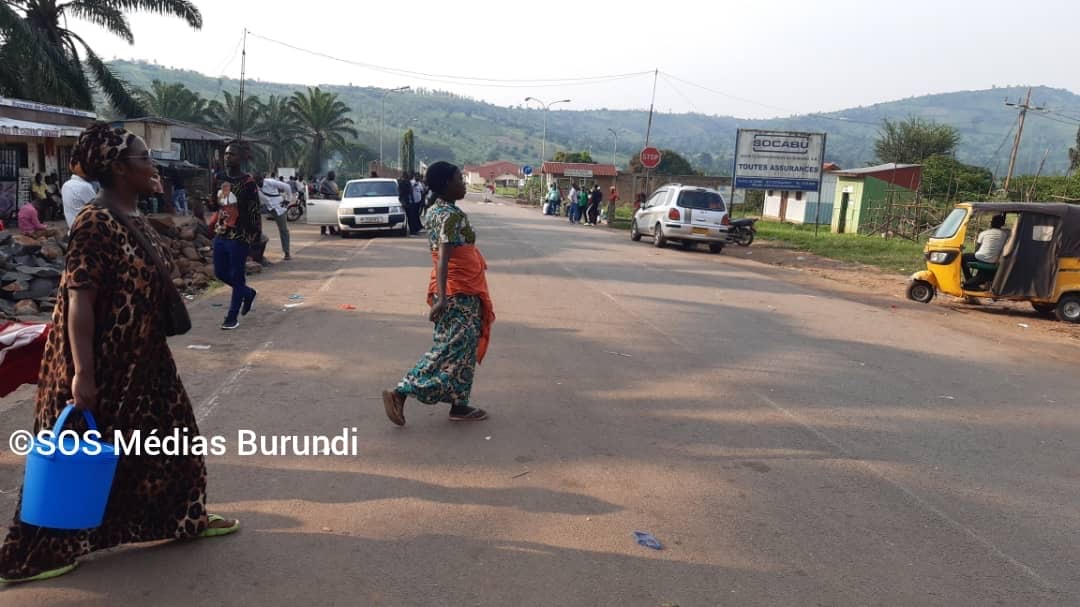Closed borders, shattered lives : the plight of the people of northern Burundi

SOS Médias Burundi
Butanyerera, July 9, 2025 – The prolonged closure of the border between Burundi and Rwanda continues to plunge the border regions of the country’s north into an unprecedented socio-economic crisis. In Bugabira, Ntega, Busoni (formerly Kirundo Province), and Nyamurenza (formerly Ngozi Province), the population is crying out in distress. Trade at a standstill, famine, insecurity : daily life has become unbearable.
Since the breakdown of diplomatic relations between Gitega and Kigali, cross-border activities that provided a livelihood for thousands of families have ground to a halt. In these rural communities, small businesses, once thriving, have collapsed.
« We transported chickens to sell in Rwanda and returned with second-hand clothes to resell in local markets. « Our entire livelihood has disappeared, » explains a trader from Nyamurenza, visibly overwhelmed by the difficulties.
This largely informal but vital trade was primarily carried out by women. Its sudden disappearance caused a collapse in family income, with dramatic social repercussions.
Disturbing disappearances fuel fear
The security climate has also deteriorated. In April 2024, two residents of the Bugabira district crossed the border into Rwanda in search of day labor. Since then, there has been no news. These unsolved disappearances fuel growing fear and mistrust of the neighboring country.
« We are afraid to cross, even to look for work. We don’t know what happened to those who left. The silence of the authorities is oppressive, » worryingly says a Bugabira resident.
Despair spreads to homes
Beyond trade, many Burundians regularly crossed the border to work in Rwandan crop fields, where daily wages were sometimes three times higher than those offered in Burundi. The value of the Rwandan currency is estimated at nearly five times that of the Burundi franc (BIF), which reinforced the economic attractiveness of these jobs.
The closure also deprived these workers of a vital income.
For some families, the consequences are terrible :
« We have nothing left. Some days, our children only eat once. We don’t know how to survive anymore, » says a mother of six in Busoni.
Faced with extreme poverty, many children are dropping out of school. A German NGO, Welthungerhilfe, is trying to limit the damage by supporting school canteens, but the needs far exceed the capacity to respond.
A desperate plea for reopening
Faced with this growing distress, residents of border communities are calling on the Burundian authorities to act.
« We’re not involved in politics. We just want to work to live. Reopen the border for us, » implores a trader from Ntega.
The people of this region hope for a rapid thaw in relations between Gitega and Kigali. In the meantime, survival dictates daily life, in the uncertain expectation of a saving reopening.
Tense relations between Gitega and Kigali
Tensions between Burundi and Rwanda have worsened in recent years. In January 2024, the Burundian government announced the closure of the land borders, accusing Kigali of supporting armed groups hostile to Gitega, notably RED-Tabara, a rebel movement based in the DRC but suspected of having links in Rwanda.
Burundian President Évariste Ndayishimiye has repeatedly stated that « peace in Burundi cannot be guaranteed as long as certain neighboring countries harbor enemies of the Burundian people. » He did not explicitly name Rwanda, but was unambiguous about the target of his accusations.
During a meeting with young people in Kinshasa, the capital of the DRC, and later during a meeting with diplomats accredited to Burundi, the Burundian head of state openly accused his Rwandan counterpart, Paul Kagame, of being « the destabilizer of the subregion » and of wanting to « attack his country as he invaded the Congo. » He recently reiterated these accusations in interviews with foreign media.
For its part, the Rwandan government has consistently denied these allegations, calling for dialogue and the normalization of relations. But regional mediation efforts, notably those led by the East African Community (EAC), have so far failed to reopen the border posts.

